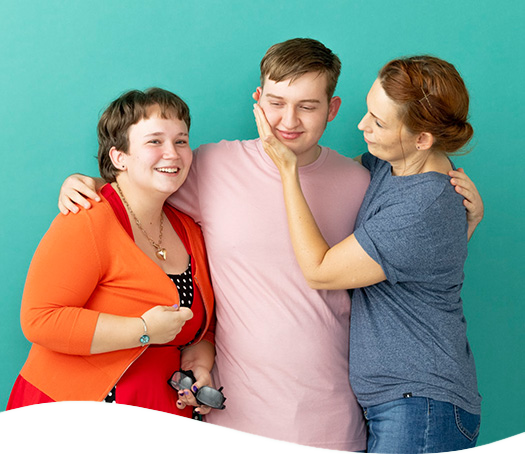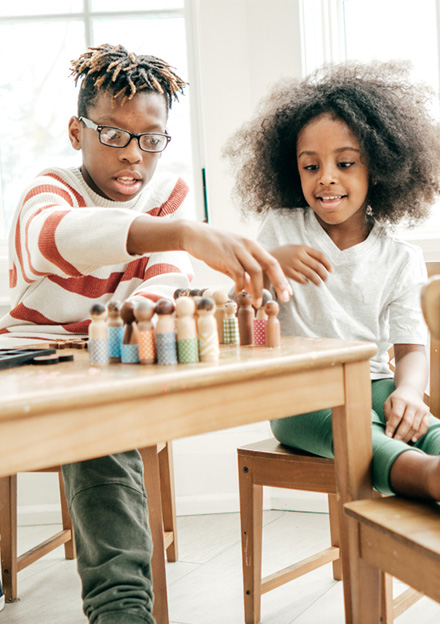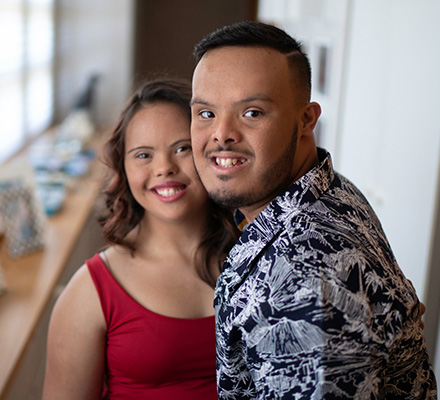Resources
Social
Connections

Building community and connecting with other people is often seen as a key to happiness in life. Acquaintances, colleagues, friends, and family, including intimate partners, can all contribute to quality of life. Historically, there was a lack of understanding about individuals with Autism and their desire for social relationships. Communication and social difficulty is a component of the Autism diagnosis; there was an assumption that because it was difficult at times, people with Autism did not want friends or relationships with others. However, research has indicated that this is not true, as children and adults with Autism report that they want to connect and engage with others.
Support and accommodations for making social connections may be needed, and some people with Autism may choose to connect in a different manner than people who don’t have Autism. The diagnosis of Autism does not imply that an individual with Autism wants to be alone.
Furthermore, bullying in middle and high school, and even in the workplace for some adults, can be a major problem for people with Autism. The development of friendships can be one way to prevent it.

Considerations for supporting friendships and relationship development for people with Autism:
- First, self-advocacy is key to developing social relationships. It is important for people with Autism to let others know what they desire in a friendship or relationship, and what makes them happy or uncomfortable. Other people are often willing to respect these differences if they know about them.
- Second, miscommunication can make it harder for people who experience Autism to make and keep friends. Differences in neurobiology for those with Autism may mean that automatically picking up, incorporating, and effectively using elusive and transient social information is more difficult for them. This information is called the “hidden curriculum”. These unwritten social rules can be vague and confusing. Getting social experience, discussing social rules, and joining classes or support programs that teach these rules are good ways to clarify the hidden curriculum and make socializing easier and more rewarding.
- Third, many friendships are based on similarities in interests or experiences, and the sharing of these interests. Many people with Autism have particularly strong interests in certain areas. Clubs where people with similar interests are likely to gather are excellent places to connect with others and find friends. Some examples might include participating in museum workshops on favorite topics, volunteering at zoos, animal rescues, or other nonprofits, taking classes in subjects of interest, or joining local events centered on an interest.



There are different types of friendships:
Close personal friends will stick up for each other in front of others, answer questions honestly (in a kind way), help each other when there is a need, support each other emotionally through difficult times, and enjoy spending time together. Most people, whether neurotypical or who experience Autism, only have a few friends who meet this definition of a close personal friend.
Personal friendships are less intense, and are generally built on one or more shared interests. Personal friends share their thoughts and feelings as well as experiences. Some people who experience Autism tend to be very open, honest, and willing to share themselves with others – traits personal and close personal friends will value.
Casual acquaintances and coworkers, however, might not want to share or be shared with as much. They might not be as ready to be open and honest and share personal information about themselves, and they may feel uncomfortable if others share too much about themselves too soon. Casual acquaintances and coworkers can become close personal friends over time, but it is typically built on having a common interest outside of work and the interest of both people in developing the friendship further.
A shared understanding of the friendship level is very important for establishing a mutual, reciprocal, equal friendship where both people have power in the relationship and are comfortable with how the relationship is going.


